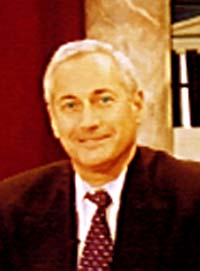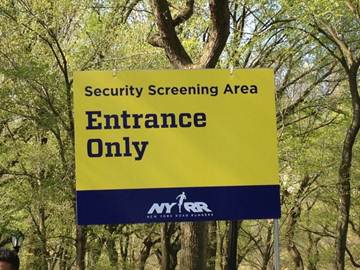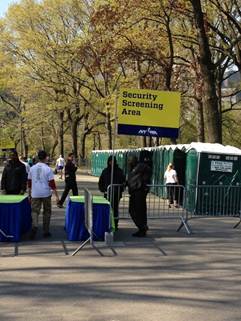Yesterday I was emailing with Max Herman, a student at Fordham Law School, about a potential series of guest blogs here. The issue was one he was studying, and one that the Second Circuit Court of Appeals had sent over to the New York Court of Appeals for an opinion on how New York law would handle this case of first impression.
The subject: Medical monitoring as a possible cause of action in cigarette cases. And before we had even firmed up the way to approach it as a guest blog series — Bam! The New York Court of Appeals released the decision today.
Without further ado, I introduce Max Herman:
———————————-
So you find out that for the last 10 years you’ve been exposed to radiation, dioxin or carcinogenic smoke. And you also find out that your exposure is due to the negligence of another. Of course, you haven’t developed any symptoms, yet the doctors tell you your likelihood of developing cancer has been substantially increased. You’re scared, angry and realize that for the rest of your life you’re going to need medical surveillance if you’re going to beat the disease to its potential punch.
“But who’s going to pay for that monitoring?” you wonder. I don’t know, but if you’re in New York, I know it won’t be the guy who caused your exposure.
In a surprising (to me and several Federal District Courts) turn of events, the New York Court of Appeals released a decision today answering two questions asked by the Second Circuit:
Does New York State recognize an independent claim for medical monitoring?
And if so, what are the elements and when does the limitations period accrue?
The highest court in the state answered the former in the negative and declined to answer the latter as academic.
The questions were asked as a part of Caronia v. Phillip Morris USA. In Caronia, a group of smokers brought suit seeking a court-administered fund for LDCT, a lung cancer monitoring system that substantially reduces lung cancer fatalities by detecting tumors earlier than other available technology.
Each smoker was over the age of fifty, had smoked for 20 ‘pack years’ (a pack year is a smoker’s years as a smoker multiplied by the number of packs smoked per day), but had yet to develop disease. Thus, because they had a disproportionately high risk of developing lung cancer, they reasoned that Phillip Morris USA, which designed, produced and marketed the inherently defective products, should pay for the fund.
In the decision, written by Associate Judge Pigott, the court finds itself loath to craft a new, non-traditional tort claim without the safeguard of an injury requirement. He explains that dispensing with the requirement would deplete both judicial and defendant resources by allowing “tens of millions” of potential plaintiffs a new avenue of recovery, potentially to the detriment of plaintiffs who actually develop disease. In short, the judges do not have time to hear all the cases and the defendants won’t be able to pay all of the victims.
The court also recognizes its limitations, admitting to a lack of “technical expertise necessary to effectively administer a program heavily dependent on scientific principles . . . .” Thus, the court hands the issue off to the legislature, which, the court suggests, is better suited to mulling over the impact of a medical monitoring cause of action than the judicial branch.
Based upon the policy arguments of ‘limited resources’ and ‘lack of expertise,’ the court found itself unwilling to allow the smokers in Caronia to proceed on a medical monitoring claim.
There was, however, some dissension on the Court of Appeals:
Where, as here, it is within the Court’s power to provide a vehicle for plaintiffs to seek equitable relief capable of forestalling profound suffering and death, judicial hesitance and legislative deference only serve to thwart the ends of justice.
Thusly, Chief Judge Lippman begins his scathing dissent, pointing out not only how worthy the plaintiffs in equity are of remedy, but also how unfortunate it is that the court failed to adapt to a changing world. He goes on, discussing the court’s squandered opportunity to craft a claim for victims of exposure and simultaneously providing safeguards and plaintiff thresholds that would prevent the sapping of resources.
Indeed, the world we live in today is not that of Blackstone. Tort law developed in a century when injuries were a consequence of burgeoning industry. Hands crushed in compactors and legs lost on railroad tracks are neat (on paper) and quantifiable.
Today, we face myriad dangers from unseen, yet equally deadly forces and actors. Molecules and energies that trespass on our bodies due to the negligence of others are no less real than blood spilled by an unguarded saw. And yet because we cannot see them, we allow those who cause the trespass to go undisturbed.
Law, like all things, must adapt or face obsolescence. A legal system that does not afford remedy until the worst possible scenario occurs does not conserve resources (as Chief Judge Lippman noted, “the cost of monitoring and treatment upon early detection pales in comparison to the expenses of treatment post-diagnosis, not to mention those incurred by wrongful death suits.”).
A legal system where an actor may be negligent yet avoid consequences because their victim has yet to fall ill is not a deterrent.
In all, the most regrettable aspect of the Court of Appeals’ decision is that lead plaintiffs in big cases against Phillip Morris USA and other mass tortfeasors are almost invariably dead due to their manifested injuries. After today, asymptomatic plaintiffs must continue to wait for their own injuries to manifest before seeking remedy in litigation; litigation that, in the style of Dickens, may very well outlive those asymptomatic plaintiffs.



 My last two posts dealt with Freedom of Information requests to state government for data. Both decisions said that governments were allowed to evaluate the release of information based on the reasons for the requests, balancing out the privacy concerns of those whose information was sought.
My last two posts dealt with Freedom of Information requests to state government for data. Both decisions said that governments were allowed to evaluate the release of information based on the reasons for the requests, balancing out the privacy concerns of those whose information was sought.

